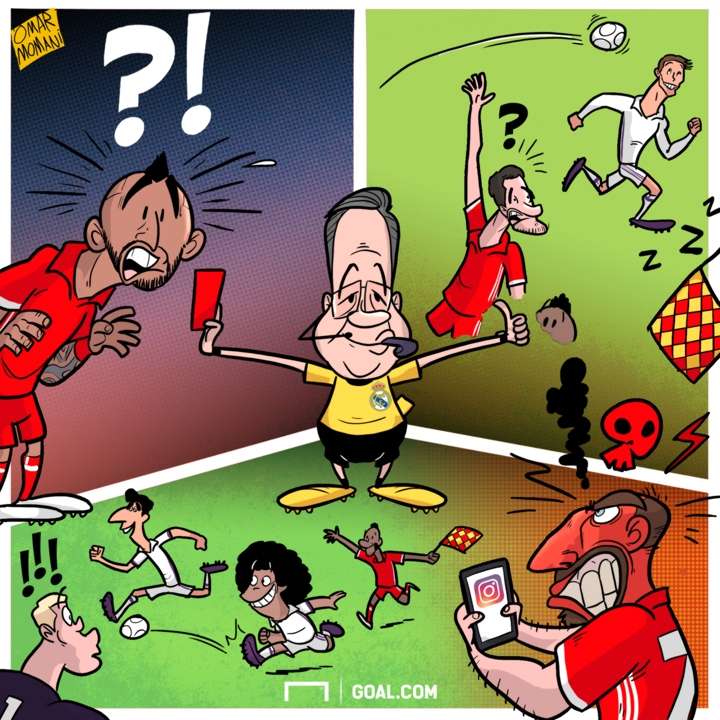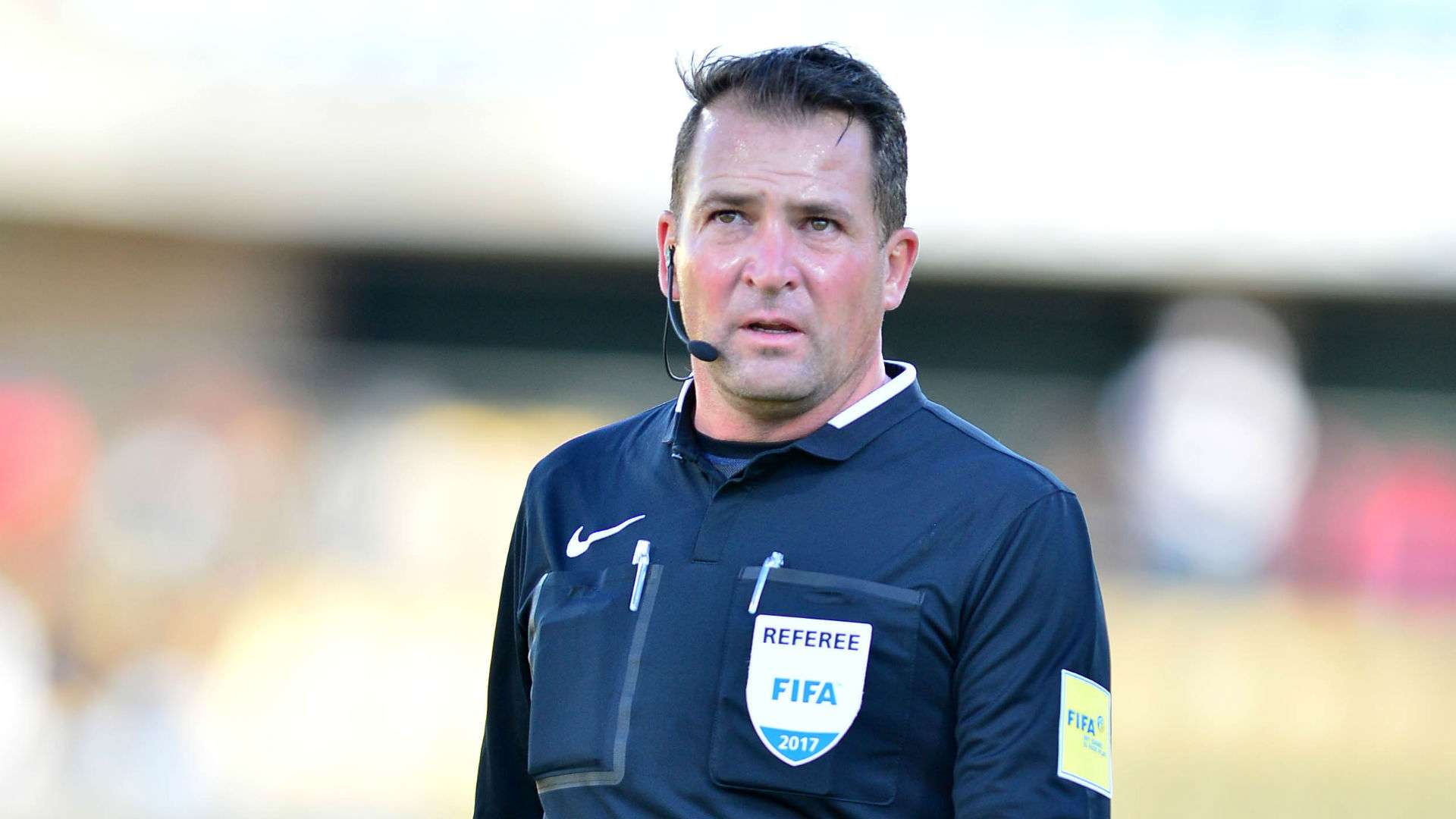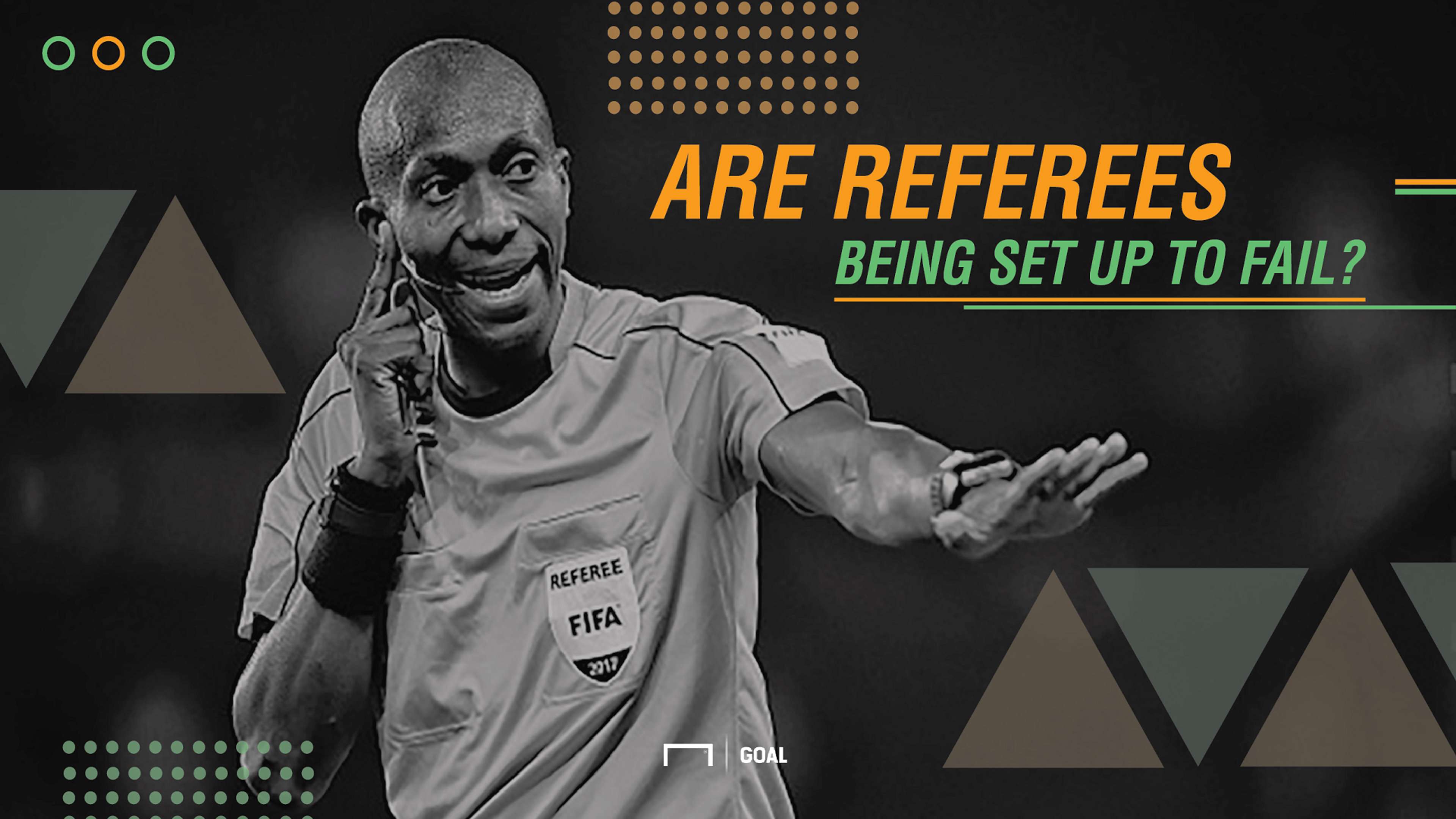SCIENCE OF FOOTBALL: DR KHATIJA BAHDUR
While last week's article focussed on the physical training of referees, this one takes a look at the human side of being a referee.
As much as we like to treat athletes as machines, the reality is they are just people.
Referees are no different, which means general life stresses such as a sick family member, relationship problems and financial stress all add to the emotional and mental fatigue the person undergoes.
In South Africa and many other countries, refereeing is not a full-time profession and referees have other jobs outside being the middle-man.
Balancing just these two roles is a fine art, with needing time off work to travel to games, and trying to get work done, while also throwing in a good quality training session that fits into refereeing at the highest levels of the game.
Within teams we talk about individualised planning, within referees, there is no other way.
Matches are on different days, referees live in different cities, have different schedules, different access to fields and gyms to train, and different individual profiles.
In an ideal world, each referee would be given a fully individualised training program. Technology such as GPS data and heartrate date would be maximised to identify fatigue risk, and other problems and multidimensional scientific support would be given to referees based on their needs and requirements.
 Omar Momani
Omar Momani
Science of football: Are players too tired to excel
This, unfortunately, requires manpower and the reality is that often referees are told to train, given general advice and expected to be able to do this easily.
Then there is the nutritional aspect.
Teams have nicely prepared pre- and post-match meals, based on all the scientific principles linked with maximising performance and speeding up recovery.
Referees have each other and time limits so whether they eat and what they eat both before and after a match is decided based on where they are, what food outlets are open, what the cost factor is and general convenience. This usually leads to diets that go against every performance related plan and leads to higher levels of fatigue and can decrease performance.
Then there is the travel. Flying makes things convenient, but we live in a country where often some travel must be done by road.
Players do not have to drive the bus, are not faced with the cognitive demands of driving, staying alert when the adrenalin high of the match wears off and when travelling immediately after a match can sleep on the way.
Referees are driving themselves to and from airports. Usually, when they decide their travel plans they decide it based on convenience or work commitments.
There is no one looking at ideal travel plans. Pre- and post-travel advice which can minimise fatigue and also maximise recovery tools such as sleeping are missing.
International referees have it worse. In recent years we have heard of the challenges of teams like Sundowns and Pirates as they have excelled in CAF competitions.
South Africa can proudly say that for many years referees like Daniel Bennett and Victor Gomes have been flying the flag high for the country following in the footsteps of referees like Jerome Damon.
 Backpagepix
Backpagepix
And while this is good for the country, it also means that these referees have never really had an off season as one season merges into the next.
There is limited rest, advice and planning to ensure that the International referees can stay at the top of their game for many years to come. There have been several cases when referees have re-entered the country from an international trip, and immediately had to go to stadiums to officiate.
We know travelling in Africa has so many challenges, so how does one expect a referee to do this?
Referees often run the pre-season fitness test at the end of June/beginning of July. This means that referees not officiating in play-offs or international matches are still required to be training hard to pass the fitness test in order to ensure that they are on the panel.
The result can be two-fold, referees train, pass the fitness test and take a break after the fitness test.
This means that when teams are improving in fitness, referees are detraining, or referees continue training after the fitness test without getting any time for an off-season.
Fitness tests are often used at the beginning of pre-season, but usually to create base-line values and decide starting intensities and workloads for pre-season, rather than being used at a cut-off.
With proper periodization, one would not expect nor want any sportsperson to be in peak condition that long before competition because the negative effects will be felt later on in the season.
Fatigue can lead to injury and without the right guidance and assessing all the possible injury risk factors a person has (this varies according to each individual) and using individualised injury prevention programmes, combined with better advice on training and training specific to refereeing demands, injuries will occur.
Because referees are not actively involved in play, the risk of contact injuries is low, but that means most injuries are non-contact and one of the most frequent risk factors for non-contact injuries is overuse.

At the 2014 Fifa World Cup, the only South African referee present, pulled out of the tournament prior to the tournament due to injury. It is worrying to look at the number of referees who retired with injuries.
It is even more concerning to look at the number of referees who continue to referee injured, without proper rehabilitation and medical advice. There can be a perception that not getting a game is a punishment since referees can be suspended for mistakes.
The result is that no one wants to rest, and every weekend is another game. Even the Fifa weekend brings compulsory fitness tests.
We live in a world where football has evolved. There is so much research, technology, expertise and support in different forms aimed at improving sports performance, but this should be done with the understanding that we are working with people. As resilient as the human body and mind is, there are limitations.
With requiring referees to referee at all levels, such high fixture schedules, the high levels of physical, emotional and psychological stress and the fact that we do not use the resources available, are we not just setting referees up to fail?




.jpg?auto=webp&format=pjpg&width=640&quality=60)
.jpg?auto=webp&format=pjpg&width=640&quality=60)